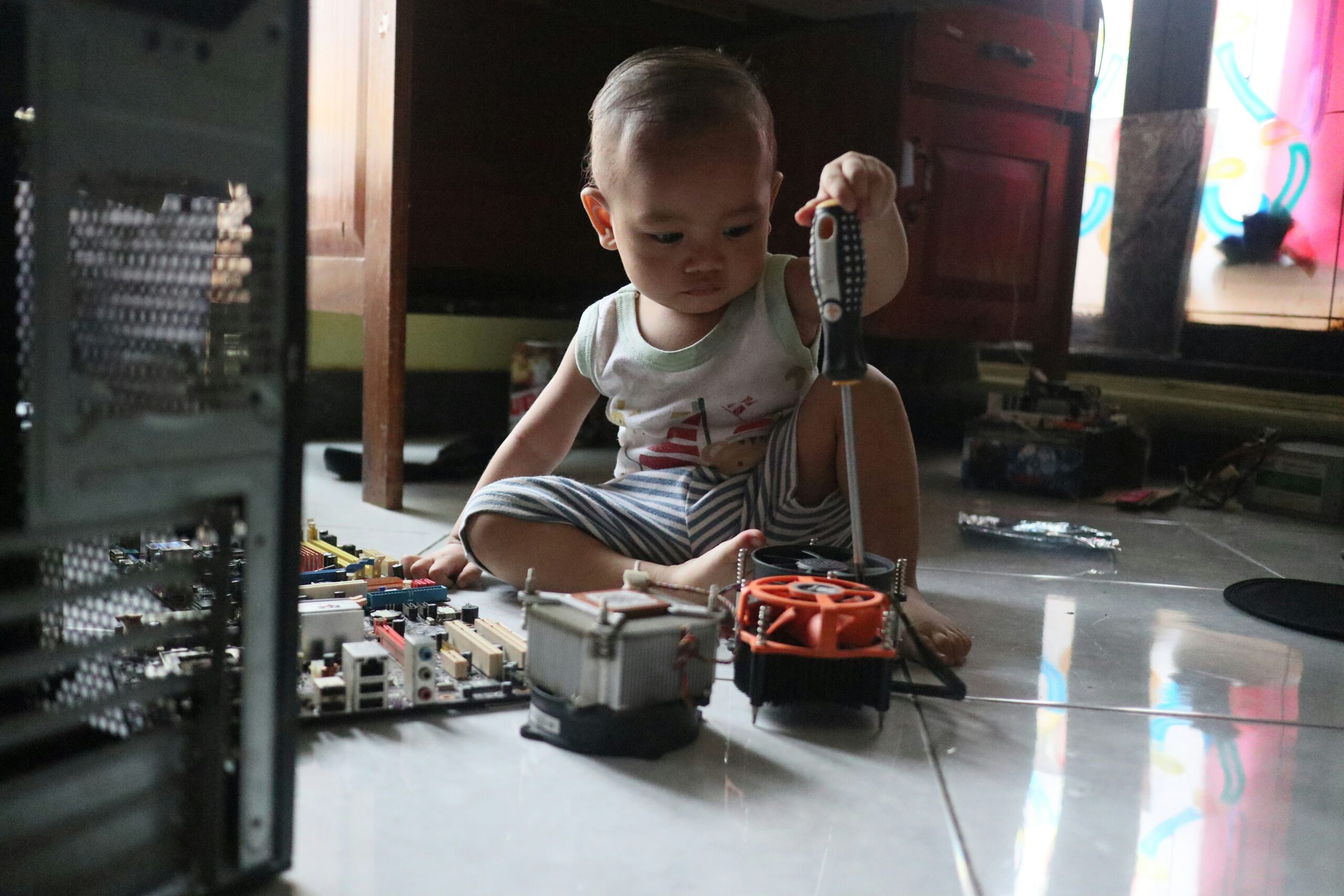Have you ever wondered how your organs work together to keep your body functioning smoothly? It's fascinating to explore the intricate connections and interactions between these vital components. From the heart's rhythmic pumping to the lungs' vital oxygen exchange, each organ plays a unique role in maintaining your overall health and well-being. In this article, we will take a closer look at the remarkable ways in which the different organs in your body relate to one another, highlighting the importance of their harmonious collaboration.

The Function of the Heart
The heart, as the tireless worker, is responsible for pumping blood to all the organs in your body. It tirelessly performs this vital function day in and day out to ensure that oxygen-rich blood reaches every nook and cranny of your system. By contracting and relaxing rhythmically, the heart pushes blood out of its chambers and into the arteries. From there, the arteries carry the oxygenated blood to all the organs and tissues, supplying them with the essential nutrients and oxygen they need to function properly. Without this continuous cycle of blood flow, your body would quickly falter and fail to maintain its balance.
To receive blood from other organs, the heart relies on the veins. Veins collect the deoxygenated blood, along with metabolic waste products, from all parts of the body and bring it back to the heart. The blood then enters the heart's right atrium and is pumped into the right ventricle. From there, it is sent to the lungs to be oxygenated once again. This systematic process allows for the removal of waste and the replenishment of oxygen, ensuring that your body remains in optimal condition.
The heart's role in maintaining homeostasis is of utmost importance. Homeostasis refers to the body's ability to maintain internal stability despite external changes. The heart plays a crucial role in this delicate balance by regulating blood pressure. It adjusts the force with which it pumps blood, depending on the body's needs, to maintain a stable blood pressure. Additionally, through its pumping action, the heart helps distribute heat throughout the body, thus contributing to temperature regulation. Without the heart's dedication to homeostasis, the body would struggle to adapt to different circumstances and function properly.
The Role of the Lungs
The lungs, like two efficient oxygen factories, are responsible for oxygenating the blood that your heart tirelessly pumps. Through a process called respiration, the lungs take in oxygen and release carbon dioxide, ensuring a continuous supply of fresh oxygen to the bloodstream. As you breathe in, air enters your lungs and travels into the alveoli, tiny air sacs within the lungs. These alveoli are surrounded by an intricate network of capillaries, where the exchange of gases takes place. Oxygen passes from the alveoli into the capillaries, while carbon dioxide diffuses from the capillaries into the alveoli to be exhaled. This exchange allows oxygen to be delivered to all of the body's organs and tissues, fueling their activities.
The lungs' role in maintaining pH balance is closely tied to gas exchange. When carbon dioxide is expelled during exhalation, it helps regulate the blood's pH level by reducing its acidity. This counteracts the buildup of acid in the bloodstream and helps maintain a balanced pH range. By ensuring proper gas exchange, the lungs contribute to the body's overall pH homeostasis, which is essential for normal bodily functions.
The Kidney’s Contributions
The kidneys, like master chemists, play a critical role in removing waste from your body. They filter your blood to remove excess water, toxins, and waste products, creating urine. Through a complex process involving tiny filtering units called nephrons, the kidneys continuously extract waste materials from the blood and maintain the body's fluid balance. The purified blood is then returned to circulation, while the waste products are excreted through the urinary system. This vital function allows your body to eliminate harmful substances and maintain a healthy internal environment.
The kidneys and the liver have a close relationship when it comes to waste removal. While the kidneys primarily filter water-soluble waste products, the liver is responsible for breaking down fat-soluble waste products. These waste products, which originate from metabolic activities, medications, or other sources, are processed by the liver and converted into more easily excretable forms. The liver then releases these waste products into the bile, which eventually makes its way to the intestines for elimination. This collaboration between the kidneys and the liver ensures that your body's waste disposal systems work hand in hand, keeping you healthy and functioning optimally.
In addition to waste removal, the kidneys are responsible for regulating blood pressure and other vital functions. They help maintain fluid balance by adjusting the excretion or reabsorption of water and electrolytes. By producing hormones like renin and erythropoietin, the kidneys also contribute to blood pressure regulation and red blood cell production, respectively. The intricate control mechanisms orchestrated by the kidneys ensure that your body's internal environment remains stable and in harmony.
The Importance of the Brain
The brain, the ultimate conductor of your body's symphony, is responsible for coordinating and regulating the functions of all the other organs. Through its extensive network of neurons, the brain communicates with the nervous system to ensure smooth transmission of information across the body. It receives sensory inputs from various organs and sensory receptors, interpreting them to make sense of the surrounding environment. This information-processing allows you to respond to external stimuli, helping you navigate the world around you.
The brain's relationship with sensory organs is crucial for its understanding of the world. It receives input from organs such as the eyes, ears, nose, tongue, and skin, enabling you to see, hear, smell, taste, and touch. These sensory inputs are then processed and integrated to provide you with a complete sensory experience. For example, the brain receives visual information from the eyes, interprets it, and constructs the perception of the surrounding environment. By constantly interacting with sensory organs, the brain maintains its connection with the external world, which is essential for your overall well-being.
One of the brain's most critical roles is to regulate the functions of other organs. It does this through the autonomic nervous system, which is responsible for controlling involuntary functions such as heart rate, digestion, and breathing. By sending signals to various organs, the brain ensures that they function in harmony and respond appropriately to different situations. For example, when you exercise, the brain increases your heart rate and breathing rate to supply more oxygen to your muscles. This regulation helps maintain the equilibrium of your body's functions, ensuring that everything works together seamlessly.

The Function of the Liver
The liver, like a versatile multitasker, performs a multitude of functions that are essential for your overall well-being. It aids digestion by producing bile, a substance that helps break down fats into smaller molecules for better absorption. Bile is then stored in the gallbladder and released into the small intestine when needed, where it emulsifies fats and facilitates their digestion. By contributing to the digestion of fats, the liver ensures that nutrients can be efficiently absorbed and utilized by the body.
Detoxification is another vital role played by the liver. It metabolizes and eliminates toxins, drugs, and other harmful substances from the body. Through a series of enzymatic reactions, the liver converts these substances into less toxic forms that can be excreted safely. This detoxification process is crucial for maintaining the body's overall health and preventing the accumulation of harmful substances that could cause damage to organs and tissues.
The liver's relationship with other organs is interwoven through its extensive network of blood vessels. It receives blood from the digestive system through the hepatic portal vein, allowing it to process and filter the nutrients and toxins absorbed by the intestines. After processing, the liver redistributes the processed blood to other organs, ensuring that they receive the necessary nutrients while being protected from potentially harmful substances. This efficient cycle of blood flow demonstrates the liver's important role in maintaining the overall health and functioning of your body.
The Role of the Pancreas
The pancreas, like a precision regulator, plays a crucial role in maintaining the body's blood sugar levels and aiding digestion. It produces and regulates the hormone insulin, which is essential for regulating blood sugar levels. Insulin allows cells to take in glucose from the bloodstream, where it can be used as an energy source. By closely monitoring blood sugar levels and adjusting insulin production accordingly, the pancreas helps keep your body's energy supply in check and prevents the onset of conditions like diabetes.
In addition to its endocrine functions, the pancreas also plays a role in digestion. It produces digestive enzymes, such as amylase, lipase, and proteases, which are released into the small intestine to break down carbohydrates, fats, and proteins, respectively. These enzymes work in conjunction with the liver and other digestive organs to ensure that nutrients are properly processed and absorbed.
The pancreas interacts with other organs to ensure efficient digestion and energy regulation. It communicates with the liver, which produces bile required for fat digestion, and the gallbladder, where bile is stored and released into the small intestine. This collaboration between organs ensures that the digestive system functions smoothly and that nutrients are sufficiently broken down and absorbed. The pancreas' ability to regulate insulin levels and aid digestion plays a vital role in maintaining your body's health and well-being.

The Significance of the Skin
The skin, your body's armor and barrier, provides crucial protection against external harm. With its multiple layers, the skin acts as a physical barrier, preventing harmful microorganisms, chemicals, and foreign particles from entering the body. It also helps regulate moisture loss, keeping your internal tissues hydrated. Through the production of oil, sweat, and other substances, the skin forms a protective pH balance and environment that discourage the growth of harmful bacteria. This protective function of the skin ensures that your body remains shielded from potential threats.
The health of your skin is closely tied to the well-being of other organs. Conditions such as liver disease or kidney dysfunction can manifest as changes in the skin's appearance, indicating an imbalance in internal organ functions. Similarly, certain skin conditions like psoriasis or eczema can have links to immune system dysfunction. By working hand in hand with other organs, the skin acts as a visible indicator of your overall health, allowing you to monitor and address any underlying issues.
Temperature regulation is another crucial role played by the skin. Through its ability to control blood flow and the secretion of sweat, the skin helps regulate body temperature. When you are hot, blood vessels in the skin dilate, allowing more blood to flow to the surface and dissipating heat through sweat evaporation. Conversely, when you are cold, the blood vessels constrict to conserve heat. By maintaining your body's temperature within a narrow range, the skin ensures that your internal processes can function optimally.
The Role of the Stomach
The stomach, like a robust processor, plays a crucial role in breaking down food for other organs to absorb and utilize. It churns and mixes food with gastric acid and digestive enzymes to create a semi-liquid mixture called chyme. Through its muscular contractions, known as peristalsis, the stomach facilitates the mechanical breakdown of food and helps further dissolve it. This mechanical and chemical digestion within the stomach prepares the food for subsequent absorption and assimilation in the intestines.
The stomach acid, primarily composed of hydrochloric acid, plays a vital role in the digestive process. It helps break down proteins into smaller peptides and amino acids, which are essential building blocks for growth, repair, and metabolic processes. Additionally, gastric acid creates an acidic environment that inhibits the growth of harmful bacteria and other microorganisms, protecting your body from potential infections.
The stomach works in harmony with other digestive organs to ensure the efficient breakdown and digestion of food. It communicates with the pancreas, which releases digestive enzymes into the small intestine, and the liver, which produces bile. These collaborative efforts enable the stomach to perform its crucial role in the digestive system, optimizing nutrient absorption and utilization for your overall health and well-being.

The Function of the Intestines
The intestines, like absorbent sponges, play a vital role in absorbing nutrients for other organs and completing the digestive process. Divided into the small intestine and the large intestine, they form the last components of the digestive system. The small intestine is responsible for absorbing the majority of nutrients, including carbohydrates, proteins, fats, vitamins, and minerals. Here, the inner lining of the small intestine utilizes specialized structures called villi and microvilli to increase its surface area, maximizing nutrient absorption. As the chyme passes through the small intestine, essential nutrients are absorbed into the bloodstream through the walls of the intestines, providing nourishment to all other organs and tissues.
The large intestine, or colon, focuses on absorbing water and electrolytes from the remaining digestive material. It removes excess water from the waste product and forms stools, allowing for convenient elimination. The colon also houses various beneficial microorganisms, collectively known as gut flora, which aid in digestion, produce vitamins, and help protect against harmful bacteria.
The intestines work closely with other digestive organs to ensure that the entire digestive process runs smoothly. The stomach's chyme passes into the small intestine, where it encounters digestive enzymes from the pancreas and bile from the liver. This collaborative effort allows for the breakdown and absorption of nutrients, ensuring that your body is adequately nourished. The intestines' ability to absorb nutrients and eliminate waste is crucial for maintaining your body's overall health and ensuring optimal functioning.
The Role of the Spleen
The spleen, like a vigilant guardian, plays a crucial role in the immune system and blood filtration. As part of the lymphatic system, the spleen is responsible for producing and storing immune cells, such as lymphocytes, which help fight infections. It acts as a reservoir for blood, capable of releasing additional blood cells during times of acute need, such as when you are faced with injury or illness. Additionally, the spleen filters old or damaged red blood cells, removing them from circulation and presenting a significant line of defense against harmful particles that may have attached themselves to these cells.
The spleen's close relationship with other organs aids its functioning within the immune system. It receives incoming blood from the liver through the hepatic portal vein, allowing the spleen to filter blood effectively. It works alongside lymph nodes, bone marrow, and other immune organs to mount immune responses and protect your body from harmful invaders. By participating in this intricate network of defense mechanisms, the spleen ensures that your immune system remains strong and ready to act when needed.
In conclusion, all the organs in your body work in harmony to maintain optimal health and function. From the tireless pumping of the heart to the vigilant filtering of the spleen, each organ performs its unique role while relying on the support and collaboration of other organs. Understanding the functions and relationships between these organs allows us to appreciate the complexity and interdependence of the human body. Taking care of these vital organs through a healthy lifestyle and regular medical check-ups is essential to ensure a well-functioning and balanced overall system.


